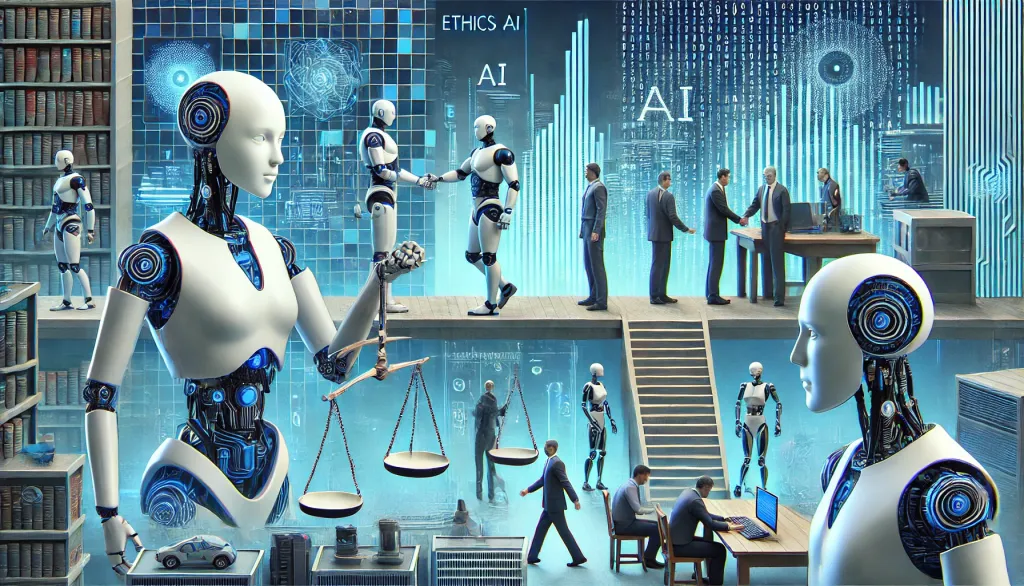Ethical Use of AI in Content Generation
Navigating Universal, Societal, and Personal Ethics
Tech Talk
2024-08-01

Artificial intelligence (AI) in content generation has changed and revolutionized how we create and consume information. From automated news stories to creative writing and marketing, AI tools are reshaping the landscape of content creation. This transformative power of AI is not just intriguing but also inspiring. However, the ethical use of AI in this domain requires careful attention to universal, societal, and personal ethics, particularly regarding copyright infringement and plagiarism.
Universal Ethics in AI Content Generation
Universal ethics focuses on fundamental principles guiding AI development and usage, ensuring fairness, transparency, and accountability in content generation.
As individuals, we play a crucial role in upholding the principles of universal ethics in content generation. We can begin by ensuring our content is fair, transparent, and accountable. By thoroughly researching and fact-checking information, presenting diverse perspectives, and avoiding bias, we can contribute to a more ethical and responsible digital environment.
Additionally, transparency about sources and methodologies and responsibility for the impact of the content are essential steps in upholding universal ethics.
Creating content aligned with these principles creates a more ethical and responsible digital environment.
Societal Ethics and AI Content Generation
Societal ethics considers AI's broader impact on communities and societies, including its cultural, economic, and social dimensions.
Addressing societal ethics as an individual involves being conscious of AI and technology's impact on communities and societies. One way to do this is by staying informed about the ethical implications of AI and engaging in discussions about its potential effects. Advocating for transparency and accountability in developing and deploying AI systems is not just important but also reassuring and confidence-building.
Additionally, individuals can support and participate in initiatives that promote responsible AI practices and ethical guidelines. By taking these steps, individuals can contribute to shaping a future where AI aligns with societal values and priorities.
Personal Ethics and AI Content Generation
On a personal level, individuals engaging with AI-generated content should consider ethical aspects related to privacy, consent, and responsible use.
Avoiding Copyright Infringement and Plagiarism
Avoiding copyright infringement and plagiarism is essential when using AI for content generation. Here are key practices to follow:
1. Use Prompts Carefully: When using AI to generate content, be specific in your prompts to guide the output. Avoid using prompts that directly replicate or paraphrase copyrighted material. Instead, use prompts that encourage the generation of original content, such as "Create a unique article about the history of artificial intelligence. Use open-source and public domain references."
2. Cite Sources: If the AI generates content based on existing works, always provide proper citations. Acknowledge the original authors and sources to avoid plagiarism. For instance, if an AI-generated text includes information from a specific study or article, cite that source appropriately.
3. Use Public Domain and Open-Source Materials: Utilize materials in the public domain or with open-source licenses. This ensures that the content can be used without legal restrictions. When in doubt, consult legal resources or experts to confirm the status of the material.
4. Review and Edit AI Outputs: Always review and edit AI-generated content. This helps ensure originality and adherence to ethical standards. Additionally, it allows for the refinement of the content to meet the intended purpose and audience better.
The ethical use of AI in content generation is complex and requires careful consideration of universal, societal, and personal ethics. We can use AI responsibly and creatively by following ethical guidelines, avoiding copyright infringement and plagiarism, and promoting transparency and accountability. As AI technology evolves, ongoing dialogue and ethical reflection will be essential to navigate its challenges and opportunities.
